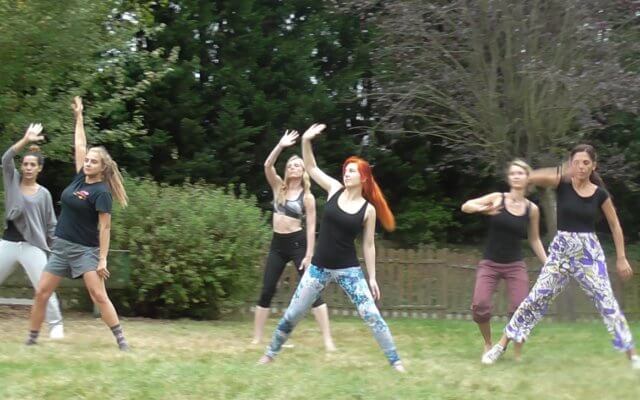ERASMUS+, Klíčová akce 1: tréninkový kurz
Místo konání: Vídeň, Rakousko
Časová osa tohoto tréninkového kurzu
- tréninkový kurz: 13.—20. říjen 2024, Vídeň Rakousko
- Zorganizování místních aktivit (v ČR): do dvou měsíců po návratu z projektu. Na aktivitě se domluvíte v českém týmu přímo na projektu, na projektu také samotnou aktivitu připravíte a po návratu ji společně jako tým implementujete.
Český tým: 3 účastníci (ve věku 20—30 let).
Přečtete si info-pack.
Hostitelská organizace: EMOTiC
Report z projektu:
Tento projekt byl můj čtvrtý. Odjížděla jsem již s jistým očekáváním. Předešlé projekty jsem si velice užila. Poznala skvělé lidi a líbil se mi program který organizátoři připravili.
Tento projekt mi přinesl zase nové pohledy na věc. Každý projekt je jedinečný a originální.
Do Vídně jsme přijížděli během příjezdového dne každý sám. S ostatními jsme se setkali až ráno na dopoledním programu.
Organizátoři nám před projektem přidali do whatsapp skupiny, odkud jsme se dozvěděli veškeré informace k 1. dni projektu.
Libilo se mi, že jsme další informace dostávali osobně a nemuseli tolik telefony používat v programu.
1. den se nesl v duchu seznamování, her na zapamatování jmen, poznávání se mezi sebou.
Všichni jsme seděli v kruhu a v krátkosti se představili.
Venku jsme hráli bingo, kam se nám na každé políčko musel podepsat někdo jiný.
Zároveň jsme o druhých něco mohli zjistit.
Po večeři jsme se všichni znovu sešli ke kulturnímu večeru.
Po státech jsme představovali svoji zemi a debatovali na různá ekologická témata, jak lidi v různých zemích vnímají náboženství humor, společenské akce, svátky a pod.
2. den jsme byli na na ekologické procházce. Všichni jsme dostali ekologické téma, které se pojí v různých zemí s jistými problémy.
Ve dvojicích jsme si vyměňovali naše zkušenosti a názory, téma jsme si po 2 minutách vždy vyměnili a našli novou dvojici.
3. den jsme v týmech měli zadání vytvořit 1h program pro ostatní účastníky na téma zlepšení ekologických podmínek a rozšíření ekologických problémů veřejnosti.
4. den jsme měli program v lese, kde jsme se učili více propojit se sebou samými, více vnímat zvuky přírody, dotyk druhé osoby atd.
5. den jsme dodělávali výstupní akce ve svém státu, jak budeme prezentovat tento projekt.
Každý večer jsme se s ostatními účastníky domluvili a chodili objevovat památky, muzea, kluby, nebo hráli společenské hry.
Celá skupina účastníků byla skvělá. Všichni úžasně spolupracovali a byla jsem moc ráda, že jsem každého z účastníků mohla poznat.
Organizátoři všechno měli výborně připravené, dali nás spousty nápadů a inspirace.
Barbora B.


